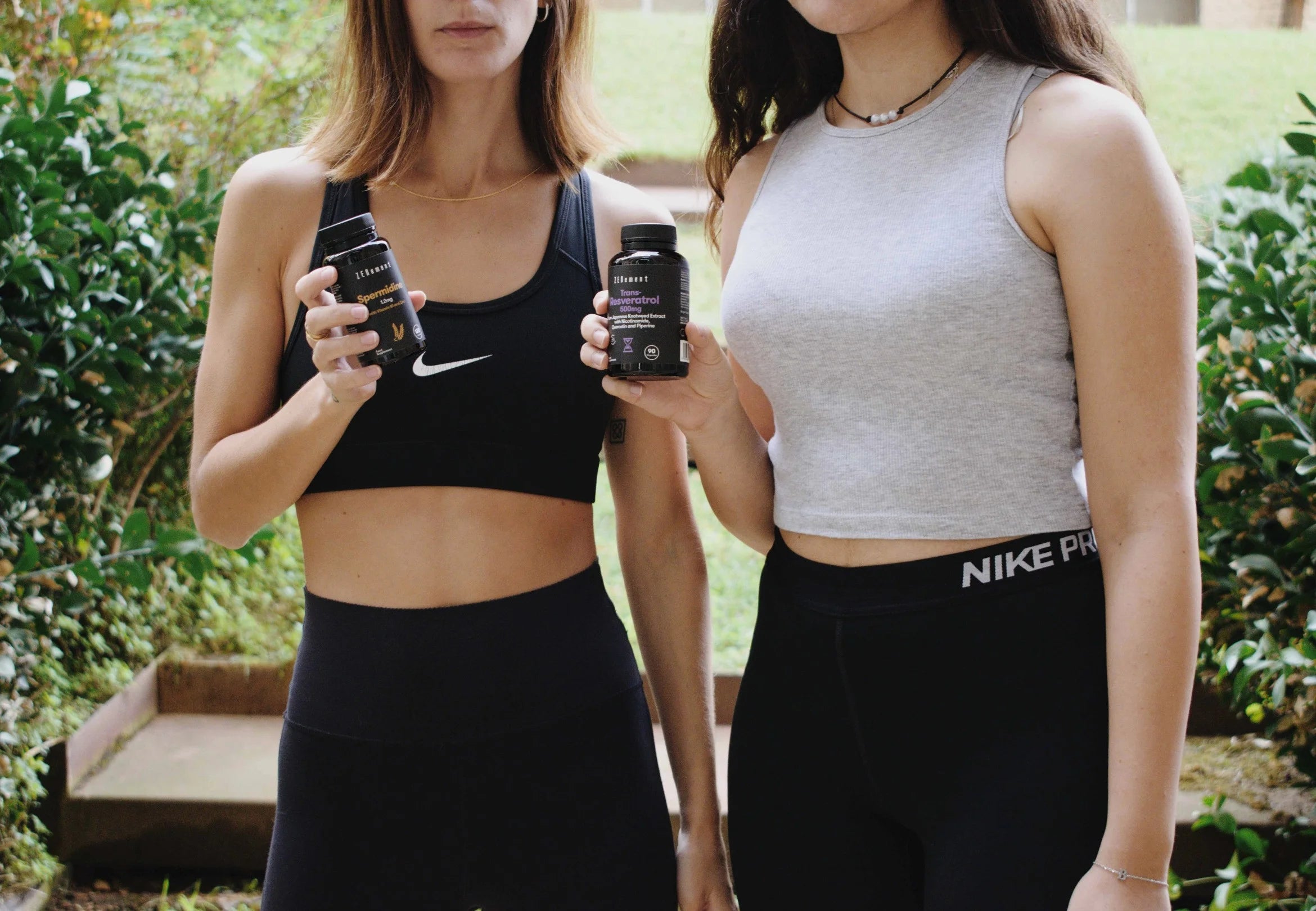Aging is just another stage of life that we should not be afraid of, since we can take actions against its signs by applying certain habits to our daily routine.
Zenement would like to give you some nutritional and lifestyle tips, as well as recommend anti-aging products that will help you achieve a healthy aging.
To begin with, nutrition plays an extremely important role in slowing down ageing. That’s why our first tips are focused on improving our eating habits. The lifestyle we lead is also key to healthy ageing. By introducing small daily habits we can promote longevity. Finally, we can also introduce food supplements to help us stay young; ageing produces a physiological decrease in micronutrients, proteins and cofactors, which leads to the malfunctioning of cellular mechanisms that control inflammatory processes and antioxidant systems. For this reason, it is advisable to increase the vitamins and molecules that stimulate our anti-ageing systems through diet or supplementation.
Here are 9 tips to keep in mind to delay aging:
1. Eat less often
David Sinclair, (professor of genetics at Harvard Medical School and a world reference in anti-aging) summarizes in 3 words the key to living longer by changing our eating habits: “Eat less often”. This does not mean eating fewer calories, but ingesting them in a shorter period of time, for example by practicing intermittent fasting. Keep in mind that this practice is contraindicated in some cases, so you should always consult a specialist to find out if you can benefit from it or not.
Calorie restriction stimulates the genes that control aging. These are three, called “longevity genes” (mTOR, AMPK and Sirtuins), which protect us against oxidative stress, repair our DNA and regulate insulin resistance.
2. Follow a balanced diet
Following a quality diet is essential for healthy ageing. In addition to calorie restriction, we advise you to eat according to these two simple guidelines:
- Increase your vegetable and reduce meat intake: there is growing evidence that diets higher in plant foods reduce death rates. Consuming less animal protein activates autophagy, a process by which the cell breaks down and destroys old, damaged or abnormal proteins and waste products are recycled. In other words, the tissues are cleansed.
- Reduce your simple sugar intake: evidence suggests that high blood sugar is harmful for the body. Hyperglycaemia can damage blood vessels, increase the risk of heart diseases, cause kidney diseases, eye problems and neurological problems. To keep your glucose levels under control, avoid sugar-sweetened beverages (especially on an empty stomach), and eat sweet foods at the end of your meals to avoid big spikes in sugar levels. Yes, dessert is a good concept.
In short, to follow a balanced diet, you should prioritise vegetables, fruit, nuts, pulses and wholegrain cereals. Also, reduce the intake of red and processed meat and sugary drinks.
|
FUN FACT: There are places in the world known as Blue Zones where people live longer than in the rest of the world: Okinawa (Japan), Sardinia (Italy), Nicoya (Costa Rica), Icaria (Greece) and Loma Linda (California). They follow the Mediterranean diet, which is based on olive oil as the main source of fat (which contains longevity-promoting polyphenols), fish and plant foods such as grapes, which contain resveratrol, the famous polyphenol with anti-ageing properties. |
3. Exercise
Studies carried out on physically active men and women prove that exercise slows down ageing, decreasing the biological age compared to the chronological age.
This is due to the fact that it improves musculoskeletal, cardio-respiratory (improves blood flow and increases glucose sensitivity) and immune function (helps to get rid of senescent cells, those that are beginning to age).
As a result, biochemical parameters improve, thereby increasing the healthy and disease-free lifespan. Many of these beneficial effects are due to the fact that exercise regulates genes that control ageing, deploying longevity-promoting mechanisms such as synthesising more mitochondria.
So, which is the most recommended sport? There is no one sport that is better than another.
Moving around is essential, but you must not forget the following:
- Strength training, which allows us to maintain correct hormone levels, good posture and adequate muscle mass. For example, weight lifting.
- About 10 minutes a day of high-intensity exercise, several times a week, where you find it hard to say more than just a few words without pausing for breath (also known as hypoxic response). E.g. high-intensity interval training (HIIT).
- Running and walking. This will help you stay active and lower your glucose levels.
|
Did you know that…? A low heart rate when resting is an indicator of good physical fitness. We recommend monitoring your heart rate throughout the day to keep track of your progress. |
4. Cold therapies
Exposing your body to cold temperatures activates longevity genes and promotes the normal adipose tissue’s transformation into brown adipose tissue (also known as brown fat). Exposure must be short and controlled, as the goal of cold exposure is to trigger beneficial stress, not to cause hypothermia.
You can do this by taking cold showers, exercising outdoors in winter or sleeping with fewer blankets.
|
Did you know that…? Brown fat is a type of tissue that owes its colour to the fact that it has more mitochondria than normal adipose tissue (which is white), and they are different from the rest; they do not generate energy but heat. Brown fat is very abundant in babies, as it allows them to maintain their body temperature. In adults, brown fat is found in smaller quantities. It is located in our shoulders and back, and when it is activated, it has a number of benefits on our metabolism. Among others: it secretes molecules that allow us to burn normal adipose tissue and keeps our bodies better protected against cardiovascular diseases. |
5. Avoid tobacco and alcohol
Both cause premature ageing. Tobacco, among many other harmful substances, contains carbon monoxide which binds to haemoglobin and reduces oxygen flow to our cells. In addition, tobacco stimulates metalloproteinase activity, accelerating skin collagen and elastic fibre degradation and damaging the skin’s structure.
As for alcohol, according to the National Institute of Aging (NIH), in the long term it can lead to memory problems, cardiovascular disease and other conditions.
6. Protect your skin
Ageing also manifests itself in our skin, causing changes in its structure, function and appearance, increasing wrinkles and excessive pigmentation.
That is why prevention is important, and the use of moisturising creams and sunscreens against UV radiation from the sun, which causes an increase in free radicals (oxidising molecules that damage our tissues) and damage our skin cells.
You can find more tips in our blog post on how to take care of your skin.
7. Sleep should be restful
Not enough sleep or bad quality sleep accelerates ageing.
Lack of sleep is associated with increased cortisol levels and insulin resistance, as well as poor cognitive
functioning and hypertension.
In our blog post tips for sleeping better, we give you some guidelines for getting quality rest.
8. Take antioxidant substances
It is highly recommended to consume vitamin C, vitamin E and astaxanthin, which act as scavengers or neutralisers of free radicals, helping to prevent cardiovascular risk, among other functions. Other compounds such as glutathione and coenzyme Q10 strengthen our natural antioxidant systems and help to improve mitochondrial function.
|
Did you know that…? Free radicals can decrease muscle contraction force. This leads to reduced physical performance. This is why antioxidant supplements are useful for athletes. |
9. Use longevity molecules
They are natural molecules that help to improve our health by prolonging our life. Each of them has the ability to stimulate a specific genetic pathway, giving rise to various anti-ageing benefits. These include spermidine, berberine, resveratrol and quercetin. The right combination of these products allows us to combat the different causes of ageing on different fronts by reinforcing the different cellular systems.
In our blog post “Genes that control ageing and molecules that regulate them” we explain which genes are involved in cellular ageing regulation, and we summarise some of the longevity molecules involved in regulating these survival circuits.
In short, a few changes in nutrition and lifestyle can make a difference to how we age. In addition, studies have provided evidence that when combining these habits with anti-ageing supplements, their beneficial effects combine together.
References:
Most of the information contained in this article was taken from David Sinclair’s Lifespan podcast series


